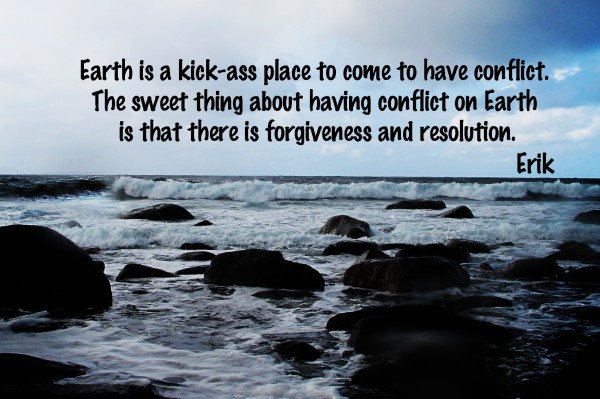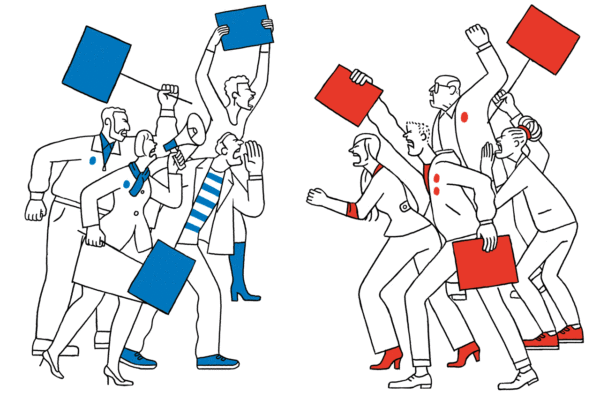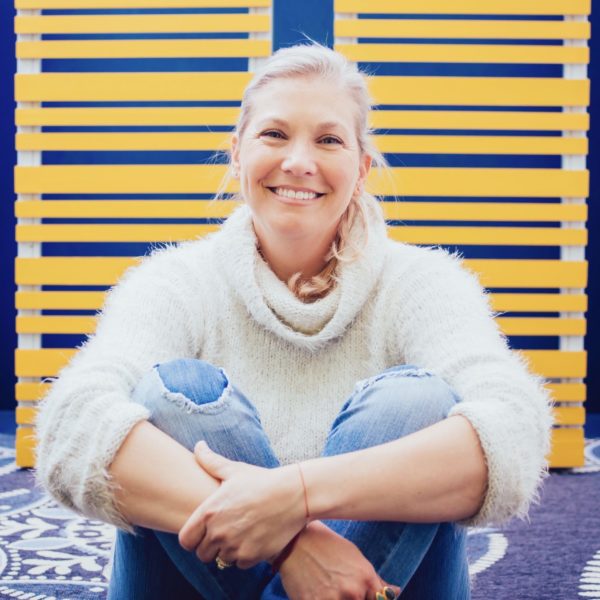Today, five years ago, I buried my baby boy. The weather and my heart were just as dreary. I remember being in a complete fog that day. Everyone at the funeral was so nice, but I thought it was strange to see so many smiles and laughter. In retrospect, I guess they were sharing fond Erik stories and struggling to find a little comic relief, but still, I felt like I was a Martian observing the strange behavior of earthlings.
The room was full, but not as much as it should have been because it was Columbus Day, a holiday for students, and I guess it was more important for them to use that day for having a good time than paying their final respects to a friend. If it had fallen on a school day, they would have used it as an opportunity to play hooky. I say all this not for the sake of being cynical. I just know his “friends,” and few were good to him. They were around when they needed his compassion but ignored him when they didn’t.
Enough of this dreariness. Erik is happy now, and for that I’m grateful. Here, he concludes the LGBT series, which is really a series about love and empowerment.
Me: Let’s talk about bisexuality. I wonder if that’s a more evolved state because love, in their case, is not necessarily gender based. Maybe with them love is love is love.
Erik: We’ve used the words “less evolved” and “more evolved” in the past. I know I have. Sometimes I’ve found that necessary, but I’m starting to learn the vocabulary to say it in a way that doesn’t come across as “this is better than that.” You can say that bisexuality is a different kind of awareness. By having lived as a bisexual, a person has helped increase the awareness of other people. It’s just living as an example of a certain kind of awareness.
Me: Okay. What do you mean? What type of awareness does it increase?
Erik: Of all the diversity we have. You know what a great metaphor for awareness is? The veil. We talk about “the veil” being lifted. What happens when the veil is draped over you? All you can see is what’s in front of you. You don’t have any awareness of anything beyond that veil, but as soon as it’s lifted, your awareness expands. Then there’s another veil that encompasses that fresh line of sight of what you can then perceive. It goes on and on. There are an infinite number of veils. I don’t mean to get off on a tangent.
Me (chuckling): Yes you do, and you know it!
Erik: You got me, Mom.
Me: All right, what about the lesson of finding your voice when having that voice makes you vulnerable and puts you often in a dangerous position. Those with different sexual orientations have to stake their rightful claim to be a respected and loved member of society. That often takes a powerful voice.
Erik: You can be put into the illusion of being in danger, but there’s no such thing. When you’re out of the physical body, danger doesn’t exist.
Okay, but I’m not going to rush out in front of a big bus.
Me: I guess I mean having a louder voice.
Erik: Right. A great example of that would be like the girls in Russia. Pussy riot.
Huh?
Robert: He likes saying that. “Pussy riot, pussy riot, pussy riot.” I’ve heard of them before. They’re a group of women in Russia who have been protesting so they put themselves in danger.
Me: Well, what are they protesting? I don’t know anything about this.
Robert: It’s Russia’s version of what went on here in the 60s, but it has to do with different things especially the government exerting so much control and telling women what to do, not allowing women to have a voice.
They’d bump into all sorts of trouble with me.
Erik: In that example, they don’t have any fear over bodily injury. That expands the awareness and pushes that country to evolve and step out of ways that are no longer serving them anymore, ways that are subverting other people and removing from others, particularly women, the ability to choose for themselves. Another example are all the girls in the Middle East where women are not allowed to do a lot of different things like vote or drive. In this case, it’s the same lessons as what’s going on in Russia, but it’s also a lesson in facing your fears so you can see your power. For so many years, women in different countries have been disempowered, and that’s fucked up. As soon as someone removes somebody else’s ability to choose and that person allows that to happen, they become disempowered. They give their power away.
Me: So it’s also a lesson for the masses and the individuals in powerlessness and in having an awareness of what’s going on around them.
Erik: Yeah, it’s about increasing the awareness of the human species as a whole and about you increasing your own awareness. That might come in the form of facing your fears. When you face your fears, you see your fucking power! Whenever you don’t face your fears, you’re disempowering yourself.
Me: Ah! What about holding a secret. Isn’t that part of the lesson? A lot of people in the LGBT community hold onto the secret of their sexual orientation.
Erik: That’s about recognizing how to use your power. You’re keeping everyone else out. That sometimes causing those other people to suffer. Also, you’re using the secret as an excuse for keeping yourself away from everyone else. What does separation do? It creates suffering. Same with resistance. That creates suffering too.
Me: Ah!
Erik: We have to go through all of these different processes once we become consciously aware of our power. When I say “processes” I mean the experiences that allow us to get to that place of power. The goal is to find the perfect balance for us that doesn’t create suffering in ourselves or someone else. An example of someone who keeps a secret is someone who puts himself in isolation like a hermit. Sometimes people isolate themselves because they get hung up on the power of the mystery of it all. “Oooo, no one knows who I am.” Then they look back on your life and see all the things they’ve missed out on by having done that. Now, it’s okay to do that for a little while, but eventually, they have to recognize when the ego is perpetuating that. You always know when the ego’s involved because the ego is the thing that creates suffering. When you get to the point where that mystery is causing you or someone else t suffer, your power is used in a way that’s out of balance.
Me: Along the same lines, when you’re LGBT and you keep it a secret, is it based in the spiritual idea that you can’t have what you want?
Erik: Yeah, it can come from the fear of losing your family, the fear of being labeled and reacted toby the rest of society—you notice it all comes down to fear, fear of something. Fear, fear, fear.
Me: Yeah.
Erik: You can have this fear of who you are as a person, and sometimes that fear, especially in males, will come out as anger, but anger is nothing more than fear. So if you’re depriving yourself by not being open, you have to question. Questioning is just another form of interaction. Sometimes it’s with yourself; sometimes it’s with other people. It’s about self-deprivation, which is about losing your own power. It keeps you imprisoned. You’re consciously removing choice. You’re victimizing yourself.
Me: What about the transgender population?
Erik: First off, let’s talk about intersex, people who are born with both male and female anatomy or chromosomes. That gives us the opportunity to see that we shouldn’t label people as normal or abnormal. That’s the case in intersex. You are who you are. You can’t be labeled as normal or abnormal. What the fuck is that anyway?
Robert and I chuckle.
Erik: It’s so subjective. It creates all of these kinds of experiences. Think about it. If you call someone abnormal, that gives the same feeling as when you tell someone they have cancer. They get broken.
Me: Yeah. I can imagine.
Erik: That creates this whole experience that they mold their life around. It brings misery. Everyone’s okay. Everyone’s perfect just the way they are. Now when it comes to the transgender population, that’s related to empowerment again. It’s about recognizing who you truly are and about recognizing that the body you’re in doesn’t go with the way you feel inside. So you go about taking action to make your outside match the way you feel on the inside. That’s an act of love. You’re being completely emotionally honest with yourself. You’re holding onto your power. It’s like saying, “Nobody else likes this? Fuck ‘em!”
Me: Exactly. Are their any lessons transgenders provide humanity?
Erik: That’s where transgenders and intersex tie in or with anyone who is labeled “abnormal.” Let people be who they are. There is no “normal.”
Damn, what a profound message.
Me: What can those in the LGBT community do to resolve so many of the conflicts and challenges they face? Obviously some include being comfortable with your voice and things like that, but…
Erik: The great thing is that they have a stronger sense of empowerment because of all that has happened earlier starting in the 50s and 60s here in the States. They have examples to look to. They don’t have to do it all on their own and reinvent the wheel. Having an example gives them a good foundation. They have a foundation now because of that history, but if they are struggling, they need to start by getting honest with themselves. They need to say, “Now, look. What is it inside of me that just keeps perpetuating this self-loathing? What am I afraid of? Why am I so afraid to face that.” Be honest. I know I say that, and it sounds so simple, but it is! When you’re living in that moment, Mom, I can tell you from connecting with other spirits over here who went through those kinds of lives that I see it in a totally different way. I see how many barriers they had within themselves to even get to that point. But, I’m telling you, it’s really as easy as that. You just have to sit down, ask the questions and answer them. Now for some people who haven’t come out yet, it’s a matter of finding other people who are gay. Hang around them. Start getting comfortable being around people who feel the same way that you do. That will give you a sense of community.
Me: And it gives you a more comfortable place to exercise your voice. You can find your voice when you feel supported by others. This applies to situations far beyond the LGBT community.
Erik: Right. Your internal and your external voice. In this example, they still might not accept who they are in a way that allows them to express it to their friends and family openly, but they need to be patient with themselves and keep living life in a way that feels comfortable.
Me: I guess it takes being okay with the fact that different people have different reactions to what you say and do. There is no right or wrong, only lessons, as you say, Erik.
Erik: Yep. It all goes back to fear, but the specific kind of fear here is the fear of rejection. A lot of times, when a kid comes out to his family, he thinks he can be open with them, but when he tells them, he gets kicked to the curb. That happens a lot.
Me (with sadness): Yeah.
Erik: So can you blame somebody for not wanting to come out? It’s often a matter of survival.
Me: Exactly.
Erik: So the bottom line is to first ask yourself the questions, then have the balls to take action, but take that action in a way that you’re comfortable with. You don’t have to walk up to your mom and say, “You know, Mom. I like dick.”
Sigh.
Me: But you have to feel comfortable within before you can find the strength to express yourself to others.
Erik: Right. Think of it as eeeassssing up to your power. You know it’s there. You just gotta ease up to it.




